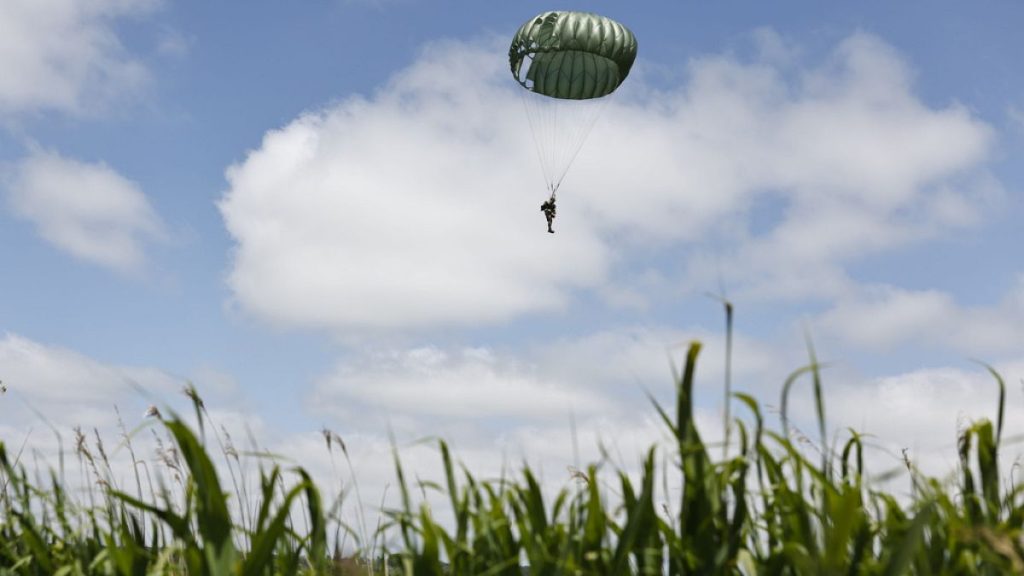The 80th anniversary of D-Day was marked by a series of ceremonies in Normandy, France to commemorate the sacrifices made by Allied troops during World War II. Parachutists jumped from World War II-era planes to kick off a week of events attended by world leaders, including Ukrainian President Volodymyr Zelenskyy, US President Joe Biden, and British royals. However, one leader notably absent was Russian President Vladimir Putin, who was not invited due to Russia’s ongoing invasion of Ukraine. This decision was made to avoid tensions between France and its allies, with EU member states expressing unease at the prospect of Putin attending.
The decision to exclude Putin sparked controversy, with many remembering the contributions of Soviet troops in World War II. The Soviet Union lost over 25 million lives in what it calls the ‘Great Patriotic War’, and the Kremlin marks that victory with an annual military parade on Red Square in Moscow. Despite this, the organizers of the D-Day events stood firm on their decision, citing Russia’s actions in Ukraine as the reason for not inviting Putin. While some Russian representatives were allowed access to recognize the country’s wartime sacrifice, the absence of Putin highlighted the ongoing tensions between Russia and the international community.
The D-Day events in Normandy included a range of activities, such as fireworks shows, parachute jumps, solemn commemorations, and ceremonies, aimed at passing the baton of remembrance to current generations. The remaining veterans of World War II are now in their mid-90s or older, underscoring the importance of honoring their sacrifices while they are still alive. The ceremonies also served as a reminder of the ongoing conflicts in Europe, such as the war in Ukraine, which make the remembrance of past sacrifices all the more urgent.
The decision to exclude Putin from the D-Day events raised questions about the role of commemoration in international diplomacy. While Russia’s contributions to World War II are undeniable, its actions in Ukraine have strained its relations with the international community. By not inviting Putin, France and its allies signaled their disapproval of Russia’s aggression, emphasizing the need to uphold democratic values and respect international law. The absence of Putin from the ceremonies underscored the challenges of balancing historical reconciliation with present-day conflicts and tensions.
The 80th anniversary of D-Day served as an opportunity to reflect on the sacrifices made by Allied troops during World War II and to honor the dwindling number of veterans who fought on the beaches of Normandy. The week of events included tributes to those who gave their lives for freedom and democracy, as well as a reminder of the ongoing struggles for peace and security in the world today. By excluding Putin from the commemorations, France and its allies made a statement about the importance of upholding democratic values and holding aggressors accountable for their actions.
In conclusion, the decision to exclude Putin from the D-Day events in Normandy highlighted the complexities of balancing historical remembrance with current geopolitical realities. While the ceremonies were a time to pay tribute to the sacrifices of Allied troops, they also underscored the ongoing conflicts and tensions in Europe and around the world. By not inviting Putin, France and its allies sent a strong message about the need to stand up against aggression and uphold democratic values. The 80th anniversary of D-Day was a solemn reminder of the price of freedom and the ongoing struggle for peace in the world today.













